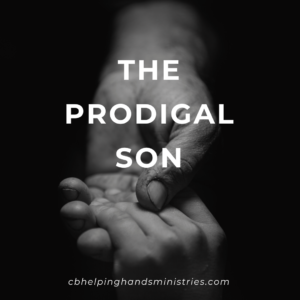The Prodigal Son

In the heart of the Gospel of Luke lies one of the most poignant and relatable parables told by Jesus—The Prodigal Son (Luke 15:11-32). This story transcends time and culture, speaking to the universal themes of love, forgiveness, and the journey of self-discovery. As we delve into this parable, we’ll explore its layers of meaning and the lessons we can draw from it for today’s world.
The narrative begins with a young man who boldly asks his father for his inheritance while the father is still alive—a request that carries with it a cultural weight, tantamount to wishing his father dead. This boldness signifies the youthful desire for independence and the misunderstandings that often accompany it. The Prodigal Son does not merely seek wealth; he seeks liberation from the constraints of familial expectations and adherence to societal norms.
As he ventures into a distant country, the son indulges in a life of reckless living, squandering his wealth and straying far from the values instilled in him. Here, many of us may see reflections of our struggles. How often do we chase fleeting pleasures at the expense of our values and relationships? The initial thrill of independence can quickly turn to despair, much like the Prodigal Son, who eventually finds himself in dire straits—a starving young man tending to pigs, longing for their food.
In his lowest moment, the son experiences a profound crisis of identity. Stripped of his riches and status, he comes to realize that his sense of self-worth cannot be tethered to wealth or worldly achievements. This moment of clarity, born from desperation, is crucial. It prompts reflection, humility, and ultimately, repentance.
The beauty of this aspect of the story lies in its relatability. Each of us has faced moments of reckoning, where our choices led us astray and forced us to confront the depths of our decisions. The journey back to a sense of purpose often requires us to grapple with our mistakes and the relationships we may have damaged along the way.
As the Prodigal Son returns home with a contrite heart, seeking forgiveness, we witness one of the most powerful scenes in scripture. The father, seeing his son from a distance, runs to him, arms wide open. He doesn’t wait for a full confession or even a promise of better behavior. Instead, he embraces his son, signifying unconditional love and acceptance.
This moment is a profound reminder of the nature of divine grace. It highlights that forgiveness is not something we have to earn; it’s a gift freely given. The father’s joy in the son’s return is a reflection of God’s love for us—no matter how far we stray, we can always find our way back home.
While the focus often rests on the Prodigal Son, the elder brother’s reaction is equally significant. He is resentful and struggles with feelings of superiority and jealousy. Despite his loyalty, he fails to recognize the grace that is offered to his wayward brother. The elder brother represents those who may feel entitled to God’s blessings based solely on their adherence to rules, missing the heart of the matter: love and forgiveness.
This dynamic prompts us to reflect on our own hearts. Are we like the elder brother, quick to judge and slow to forgive? Do we measure our worth against others, forgetting that redemption is available to all, regardless of their past?
The story of the Prodigal Son teaches us that life is a journey filled with ups and downs, moments of clarity and confusion, rebellion and return. It challenges us to examine our lives, confront our mistakes, and embrace the transformative power of forgiveness—both in giving and in receiving it.
As we reflect on this timeless parable, may we remember that no one is beyond the reach of grace. Whether we find ourselves in the shoes of the Prodigal Son, the elder brother, or the loving father, the message is clear: no matter how far we stray, the path home is always open, marked by love and acceptance, waiting for us to take the first step.
Apostle Shelia
SBI Ministries
C.B. Helping Hands Ministries
This website is a rich source of valuable insights, and we’re dedicated to maintaining free access for all. If our content has positively influenced your life, please consider making a donation to help us continue providing knowledge at no cost.
Leave a Reply